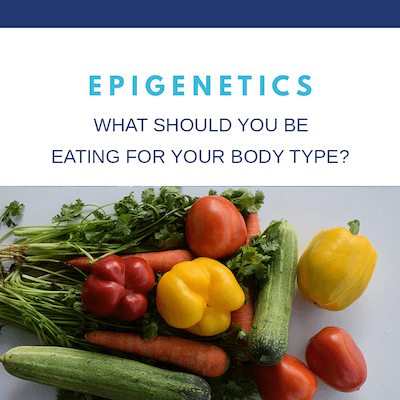Can sleep affect your weight? Doctors have uncovered several reasons why poor sleep can be adding inches to your waistline. Here are the reasons why and some tips for better sleep.
Continue readingMen’s Health Guide to Boost Your Metabolism
Inflammation Makes You Gain Weight. Peptide Therapy Can Help You Lose Weight.
What to Ask Your Doctor Before Starting Testosterone
Peptide Series: What are the Best Peptides for Weight Loss and Fat Loss?
How To Lose Weight For Healthy Testosterone Levels
Does Exercise Boost Testosterone?
What’s The Deal With Weight Gain And Low Testosterone?

If you’re struggling to see the results you want in your weight loss program, you may be dealing with a testosterone imbalance.
Have you been noticing that the number on the scale keeps increasing recently?
Is your midsection growing at a faster rate than the rest of your body?
Are you struggling to lose those pesky pounds?
Are you dieting and exercising but still not seeing the results you want?
Weight gain is a primary symptom of low testosterone.
If you have low testosterone, you’re more likely to have increased body fat.
And if you have increased body fat, you’re more likely to suffer from low testosterone.
This becomes a vicious cycle that can cause weight gain and prevent weight loss—no matter how hard you diet and exercise. This cycle can also impact other areas of your health, including stress, libido, fertility, energy, and risk for disease.
Let’s go through the basics of testosterone, how T is related to weight, and what you can do about breaking the cycle this week.

What is testosterone?
Testosterone is the “male sex hormone.” It’s the primary hormone that makes a male “manly.” Testosterone is necessary for the initial development of the testes and prostate as well as the ongoing production of sperm and semen.
Along with its sexual function, testosterone has other important purposes in the body as well. It plays a role in everything from libido to muscle development and brain health. Check out these 10 crazy and surprising effects of testosterone here.
A number of factors can cause low testosterone. This includes lifestyle, diet, and exercise. Age also plays a role, as testosterone levels naturally decline with age especially after age 50.
Because testosterone is so critical for sexual and overall health, low levels of testosterone can cause serious health concerns. Symptoms of low testosterone include:
- Weight gain
- Minimized libido (sex drive)
- Low fertility
- Loss of muscle mass
- Weak bones
- Lowered energy
- Brain fog
- Moodiness
- Depression
- Anxiety
- Low self-esteem
- Less body hair
In this post, we’re going to focus on the first symptom: weight gain.

Testosterone has a direct impact on your weight. Higher testosterone means less fat and more muscle. Lower testosterone means more fat and less muscle.
That means that testosterone not only impacts the way we look and feel, but it’s also an important aspect of overall health. Testosterone affects our weight, and weight is a proven indicator of future wellness. Being overweight is directly linked to a number of health problems, including high cholesterol, high blood sugar, type 2 diabetes, heart disease, stroke, and more.
So how does this work?
What is the relationship between weight gain and low testosterone?
A number of studies have proven that weight and testosterone are intimately linked.
Research has shown that low testosterone can cause weight gain. Thus, improving testosterone levels can help with weight loss. A 2013 study found that men taking testosterone supplements saw weight loss as a side effect. Over five years, they each lost an average of 36 pounds and 3.5 inches off the waist. Similar results were iterated in a 2016 study as well.The reverse is also true. Obesity or holding extra weight can actually reduce testosterone levels. One study found that 75% of men who qualified as obese also had hypogonadism, which is when the body produces lower amounts of testosterone.
Losing weight, then, actually shows an increase in testosterone levels—even without testosterone replacement therapy.
So where does this link between weight gain and testosterone come from?
Below are the five primary ways testosterone impacts your weight.
Testosterone plays a role in metabolism.

Testosterone plays a key role in your metabolism, which is the process that turns your carbs, fats, and proteins into energy and fuel.
This is likely because testosterone interacts with insulin and glucose. High levels of testosterone can “eat up” extra glucose. Otherwise, that glucose would be stored as fat cells in the body.
Higher levels of testosterone eat up more of your free-floating sugar to prevent weight gain.
In fact, one study found that men undergoing testosterone treatment showed a significant increase in basal metabolic rate, which is associated with a decrease in lean body mass.
In opposition, fat cells actually metabolize testosterone at a fast rate. The more fat you carry around, the faster you burn through your free testosterone.
So low testosterone causes weight gain… and then that extra fat actually minimizes your free testosterone even more.
Testosterone builds muscle.
Muscle is an important part of weight loss. Your body has to burn up its fat stores in order to build the muscle that you’re creating. Plus, muscle actually burns more calories throughout the day than fatty tissue does.
Having more muscle on your body puts you in a positive cycle of maintained weight.
And testosterone is a key hormone in the process of muscle construction and protein synthesis.

Studies show that testosterone levels increase muscle mass by boosting the body’s ability to produce protein.
This means that higher testosterone can help increase muscle, which minimizes fat storage.
Testosterone also boosts HGH, the human growth hormone. This hormone is used to build or “grow” your muscle.
Studies have shown that men with low testosterone are more likely to have less muscle mass than men with normal T levels. Similarly, men with less muscle mass are at a greater risk for low testosterone levels.
If you want healthy and attractive muscles, you need testosterone.

Testosterone regulates fat-storing estrogen.
Body fat contains an enzyme called aromatase. Aromatase converts testosterone to estradiol, which is a type of estrogen. Aromatase turns T into estrogen, which increases estrogen levels. This then signals the endocrine system to slow the production of testosterone.
Basically, fat tissue creates estrogen. Estrogen stops the production of testosterone.
Thus, reducing fat tissue helps minimize the extra estrogen caused by stored belly fat.
The reverse is also true. When testosterone is low, it increases the production of estrogen.
Estrogen then signals your body to store fat. That’s why women tend to have “softer” features and extra weight, especially around their midsection. The goal of this in females is to store fat so women have extra reserves in case they need to care for a fetus or baby.
Estrogen works the same way in a male. It tells your body to hold on to your fat “in case of emergency.” But in most cases, you’re not all that interested in holding on to extra fat tissue in case the apocalypse hits.

Body fat increases estrogen and lowers T.
And low T increases body fat storage.
Talk about a cycle of weight gain!
Thus, boosting testosterone levels can help minimize fat-storing estrogen. And losing weight can help reduce estradiol, allowing for more free-floating testosterone.
Find out more about the relationship between testosterone and estrogen, especially with regards to the estrogen in your food.
Testosterone reduces cortisol levels.
Cortisol, the “stress hormone,” is proven to increase weight gain. You’ve likely found that during stressful periods of your life, you hold on to a little more poundage than you typically would.
This is because cortisol is released in response to stress and low blood sugar. The goal of cortisol is to suppress inflammation and raise blood sugar levels. This increase in blood sugar actually promotes fat storage, especially around the abdomen.
Cortisol also causes gluconeogenesis, which is when your body transforms its protein reserves into glucose. This basically transforms the protein within your muscles into fatty tissue. You’ll start losing muscle mass and gaining fat—which links back to #2 on this list.
Testosterone and cortisol have an inverse relationship. High cortisol levels cause low levels of testosterone, and high testosterone levels cause low levels of cortisol. Low testosterone allows cortisol to run free, causing an increase in fat storage and gluconeogenesis.

Raising your testosterone levels reduces cortisol, which then minimizes the risk of extra fat storage.
You want high T and low cortisol for optimal health.
Testosterone impacts energy and stamina.
Low energy is a symptom of low testosterone. Fatigue and sluggishness are common indicators of a hormonal imbalance.
Energy is an important part of losing weight. Men with low testosterone often find they don’t have the energy or motivation to workout. When they do exercise, their stamina is so low that the workout isn’t as productive or effective as it could be.
Plus, low energy tends to lead to a more stagnant lifestyle. This means fewer calories burned throughout the day—often accompanied by an increase in the consumption of calories.
This creates a discouraging effect for men looking to lose weight. They can’t bring themselves to the gym no matter how much they want to lose the weight.
Stagnation causes a quick uptick in poundage.
How can you lose weight and increase testosterone?
Because the relationship between weight and testosterone goes both ways, it can be challenging to answer the chicken or the egg question:
Am I gaining weight because of low testosterone or do I have low testosterone because I’m gaining weight?
But the answer to this question ultimately doesn’t matter.
You don’t want weight gain or low testosterone.
So how can you break the cycle?
You have to start by boosting your testosterone.
Whether your weight gain was the cause or effect of low testosterone, losing weight starts by increasing testosterone.
Click here to discover the 13 ways to increase testosterone naturally. You’ll also want to learn about the 7 testosterone boosting myths, so you can make sure your training regimen is on the right track.
Testosterone replacement therapy might be a solution for some men, but it can also have a number of associated risks. There are other healthier ways to try increasing testosterone while losing fat.

Below are a few of the best ways to increase testosterone while losing weight—kill two birds with one stone!
- Lift weights. Resistance exercise builds muscle faster than cardio. As discussed, lean muscle burns fat faster and triggers testosterone production.
- Use high-intensity interval training. Studies show that interval training boosts testosterone better than steady endurance exercise. Interval workouts also tap into fat reserves to eat away at the pounds you’re struggling to lose.
- Stress less. The more you stress, the more cortisol you have in your body. More cortisol means less testosterone. Minimizing your stress is crucial to maintaining a healthy hormone balance. I recommend yoga, because it helps reduce stress while growing muscle mass.
- Maintain a consistent routine. You need to be exercising regularly in order to have a long-term impact on your testosterone levels. The most effective routines include both cardio and weightlifting to boost muscle mass and burn fat simultaneously.
- Don’t shy away from fats. Healthy fats are actually an important part of testosterone production. Study after study shows that low-fat, high-protein diets kill testosterone, minimize muscle mass, and increase fat storage. A balance of fats, carbs, and protein is critical for hormonal health and balance.
Learn more about the Carnivore Diet and Fat Loss here.
Learn other testosterone boosting methods here.
Conclusion
If you’re struggling to get rid of those pesky pounds, low testosterone may have something to do with it. The intimate relationship between testosterone and weight gain can create a vicious cycle that can be hard to break.
But if you boost your testosterone, you’ll increase muscle mass and strength, encourage weight loss, improve energy and stamina… and enrich your overall health and vitality!
I have the ultimate solution to breaking the cycle.
Because I’ve done it myself.
During a routine physical exam, I found out I was 25 pounds overweight. My cholesterol was 245. My doctor showed me my life expectancy chart based on my medical history and health… and it scared the crap out of me.
So I decided to make a change.
I decided to break the cycle.
And I’ve been helping men lose weight and boost testosterone ever since.
Now it’s your turn.
Ready to take the next steps?
Schedule a Call
**************************
 In Male 2.0™, Dr. Tracy Gapin has turned everything we once thought we knew about men’s health and performance upside down. The old model of how to be “a man” is broken. A man who works himself to death. Unfortunately, a man who tries to NOT get sick but isn’t really healthy either. And a man who takes a pill for every ill but is never really cured. That was Male 1.0. Now, imagine being THE MAN ─ owning your performance in the bedroom, the weight room, and the boardroom. Living a fully optimized life. Becoming limitless. This is Male 2.0!
In Male 2.0™, Dr. Tracy Gapin has turned everything we once thought we knew about men’s health and performance upside down. The old model of how to be “a man” is broken. A man who works himself to death. Unfortunately, a man who tries to NOT get sick but isn’t really healthy either. And a man who takes a pill for every ill but is never really cured. That was Male 1.0. Now, imagine being THE MAN ─ owning your performance in the bedroom, the weight room, and the boardroom. Living a fully optimized life. Becoming limitless. This is Male 2.0!
Tracy Gapin, MD, FACS is a board-certified Urologist, world renowned Men’s Health & Performance Expert, Author, and Professional Speaker. Using state-of-the-art biometric monitoring, nutrition and lifestyle intervention, Dr. Gapin coaches Fortune 500 executives and evolutionary leaders of business, sports medicine, and high performance. He specializes in cutting-edge precision medicine with an emphasis on epigenetics, providing men with a personalized path to optimizing health & performance. www.GapinInstitute.com
Want more tips to optimize your health? Listen to the latest podcasts. Click HERE
Epigenetics Series: What Should You Eat For Your Body Type?

Hippocrates said, “Let food be thy medicine and medicine be thy food.” In other words, eat for your body type.
Do you have trouble losing weight?
Are your blood tests consistently coming back with high cholesterol, adrenal concerns, low testosterone, and other risk factors?
Do you have an increased risk of disease?
Are you currently suffering from an illness?
All of these concerns may be a result of an incorrect or poor diet or failing to eat for your body type.
What you eat has a direct impact on your genetic expression, which proportionally influences your health and wellness.
This intimate relationship between nutrition and epigenetics has a direct result on your body’s health, energy, and immunity.
Healthy, nutrient-rich foods strengthen your DNA expression to minimize illness, pains, and risk of disease. In reverse, the wrong foods can activate DNA markers that make you susceptible to obesity, cardiovascular disease, cancer, and other ailments.
Food is so much more than calories and energy. The vitamins and nutrients you put in your body have a direct impact on your health at a molecular and genetic level.
Let’s take a quick look at what epigenetics is and how it’s related to your diet. Then I’ll give you a list of the best foods you should eat for your body type to activate strong genes and deactivate harmful ones.
What is epigenetics?

Epigenetics is the means of “controlling” your genes. Your DNA pattern will always remain the same. The DNA you were born with will be the DNA structure you die with.
Though your genes don’t change, the expression of those genes can alter over time. For example, you could have blonde hair as a child and now you naturally have brown hair. Your gene didn’t change, but the expression of that hair color gene changed.
This change in genetic expression occurs through activation or deactivation of epigenetic factors. “Epigenetics” looks at those processes that “turn off” or “turn on” certain genes.
Read: What Is Epigenetics & Why Do You Care?
The two most common types of activators are DNA methylation and histone acetylation.
DNA methylation occurs when methyl molecules attach to the end of genetic sequences to tighten or loosen the DNA’s double helix. This process plays a significant role in aging, cancer, and other inflammatory diseases. Methylation has been especially linked to cancer production by silencing those genes that repair cells and fight against tumors.
Histone acetylation occurs when acetyl enzymes alter the body’s histone proteins. This has been shown to control the repression of certain chromatin domains in the DNA process.
Both DNA methylation and histone acetylation impact the way your genes are expressed. If an environmental or lifestyle trigger causes either process, your genes can be silenced or activated.
Just as easily as high-risk genes can be flipped “on,” they can be reversed into the “off” position as well.
The easiest way to reverse or prevent the process of negative genetic expression is with healthy lifestyle influencers—like nutrition and diet.
How are epigenetics and diet linked?
DNA methylation and histone acetylation occur as a result of certain lifestyle and environmental triggers. These triggers can include physical exercise, stress, sleep, addiction, pollution, and diet.
Every day, our body handles oxidative stress. Oxidative stress occurs naturally whenever we metabolize oxygen in our bodies. When we exercise, move, or even breathe, we metabolize oxygen to create more energy. This is a natural, low-impact oxidative stress.
Oxidative stress also occurs from our environment, like pollution, radiation, pesticides, and chemicals. It can also be a result of high stress or lack of sleep.
Although we deal with oxidative stress daily, high stress can create a serious health problem. This stress, also called “uncontrolled free-radical production,” alters your genetic expression. It minimizes the body’s immunity and damages your body’s natural self-healing properties.

This leads to disease and cancer because the body doesn’t have the immune strength to prevent or fight against illness. Oxidative stress also promotes inflammation, which progresses conditions like cancer, premature aging, and heart disease.
We can’t prevent our bodies from dealing with oxidative stress. However, we can minimize the impact of oxidative stress on our genes and health—through a healthy diet and by ensuring you eat for your body type.
Eating certain vitamins and nutrients actually helps defend against oxidative stress in the body. In fact, diet is the number one way to fight against cancer and disease caused by oxidative stress.
What are phytonutrients?
Certain nutrients and compounds, like phytonutrients, are proven defense mechanisms against free radicals. These nutrients promote the gene expression of protective immunity genes while silencing those genes that initiate high-risk disease.
Phytonutrients are plant-based compounds that impact our bodies at the genetic level. They’re antioxidants, meaning that they fight against (“anti”) oxidative stress (“oxidants”). They’re also anti-inflammatory, meaning they defend against inflammatory triggers. These phytonutrients have healing qualities that are proven to activate healthy genes while silencing adverse ones.

There are nearly 25,000 known phytonutrients. Each plant has its own makeup of phytonutrients, which are usually found in the pigment of the plant. For example, red plants like tomatoes and watermelon contain lycopene, while yellow plants like pineapple and lemon contain flavonoids. Both lycopene and flavonoids are phytonutrients, but they impact genetic expression in unique ways.
Thus, you want to have a “rainbow diet.” A variety of plant colors helps ensure you get an array of phytonutrients in your system. For optimal body function, you need a diversity of nutrients and vitamins.
What should I eat for healthy genes?
You want to incorporate more phytonutrients into your diet in order to eat for your body type and activate immune-boosting genes and deactivate disease-risk ones. This is a process that everyone should add to eat right for his/her body type.
But what specific phytonutrients should you eat for ultimate gene health?
Below I’ll go through some of the most impactful phytonutrients that will boost your overall health—and your sexual health.
Ultimately, though, you want to focus on choosing healthy, whole foods that come in a variety of colors. Whether on this list or not, most fruits and veggies contain nutrients that can assist your body’s healthy genetic expression.
Lycopene
Phytonutrient: lycopene
Foods: tomatoes, watermelon, red cabbage, grapefruit, papaya

Lycopene is a type of carotenoid that gives a reddish color to fruit. It’s a powerful antioxidant that may help decrease the risk of chronic diseases and cancers.
Some researchers have looked at a link between lycopene and prostate cancer prevention and treatment. The general consensus is that lycopene may have an impact on prostate cancer due to its strong antioxidant effect. Lycopene is found in high concentrations in prostate cells, so it may be the fastest acting antioxidant due to proximity. Lycopene has also been linked to slower tumor growth and reduced levels of an insulin growth factor.
The lycopene antioxidant is especially related to the deactivation of “aging” genes. Basically, lycopene may help minimize the natural effects of aging!
Beta-carotene
Phytonutrient: beta-carotene
Foods: carrots, mangos, oranges, sweet potato, winter squash, cantaloupe, spinach, lettuce

Beta-carotene (BC) is most often found in orange fruits and vegetables. It may be proangiogenic, meaning it promotes angiogenesis. Angiogenesis is the creation of new blood vessels from pre-existing blood vessels. One study found that BC decreased DNA methylation and promoted vascular endothelial growth.
Strong blood vessels are critical to a healthy body. Your blood vessels transport oxygen throughout your body, delivering energy to your muscles and organs. Without a strong process of angiogenesis, you’re at a higher risk of cardiovascular disease. This vascular process also plays an important role in erectile dysfunction, which is often the result of weak blood vessels or other vascular disorders.
Flavonoids
Phytonutrient: flavonoids
Foods: lemons, citrus, pineapple, berries, apples, legumes, red wine

Flavonoids are linked to anti-inflammatory, anti-diabetic, anti-cancer, and anti-thrombogenic mechanisms. They seem to be able to module cell-signaling cascades.
Flavonoids are associated with a significantly reduced risk of stroke and cardiovascular events. This is likely because of their anti-inflammatory effects on markers of oxidative stress.
Learn more about flavonoids here.
Glucosinolate
Phytonutrient: glucosinolate
Foods: kale, arugula, watercress

Glucosinolate is a phytonutrient that suppresses cancer cell growth. These cruciferous vegetables tend to be bitter due to the high levels of glucosinolate. For years, this bitter taste was associated with plant “toxins.” In fact, the reverse has been proven true. That bitterness actually plays an important role in genetic biosynthetic pathways.
Cruciferous vegetables also contain isothiocyanates, which increase histone acetylation and activate immune-boosting genes.
Want to get the most out of your vegetables? Cut your cruciferous veggies and let them sit for five to ten minutes before cooking. This helps activate the glucosinolate enzyme to release the nutrients for digestion and absorption.
Anthocyanins
Phytonutrient: anthocyanins
Foods: pomegranates, blueberries, plums, raspberry, black rice, corn

Anthocyanins are one of the greatest phytonutrient powerhouses. In fact, the flavonoid anthocyanin plays a significant role in minimizing free radicals, decreasing inflammation, minimizing blood sugar concentrations, and preventing age-related neural declines. There are endless proven benefits of anthocyanins that your DNA expression loves.
This compound gives foods a reddish-purple pigment, so be on the lookout for dark-colored fruits like pomegranates and blueberries.
In fact, pomegranates are proven to be one of the best foods for your sexual and overall health!
Quercetin
Phytonutrient: quercetin
Foods: apples, peppers, blueberries, tomatoes, cruciferous vegetables, leafy greens, cocoa, red onion, black and green tea

Quercetin is a strong antioxidant and anti-inflammatory compound. It’s a type of polyphenolic antioxidant that reduces oxidative stress and free-radical genetic changes. Quercetin has been shown to fight inflammatory conditions like high cholesterol, heart disease, ulcers, diabetes, allergies, cognitive impairment, prostate inflammation (BPH), cancer, and skin disorders.
This anti-inflammatory effect helps activate a strong expression of your immune genes.
Apples are especially chock full of quercetin and other necessary phytonutrients. If you learn only one thing from this article, let it be this: An apple a day keeps the healthy genes at play!
Butyrate
Phytonutrient: butyrate
Foods: sauerkraut, kimchi, yogurt, pickled beets

Butyrate blocks inflammation in the body, especially in the digestive system. It plays an important role in the fermentation of dietary fibers in the gut. This gut-brain link is critical to overall health—as well as genetic health. If you have a strong gut, you are less likely to be susceptible to adverse DNA methylation.
Learn more about butyrate and probiotic microbiome health here.
Have you noticed that some of the strongest phytonutrients reduce both oxidative stress and inflammation?
Find out more about the concerns of chronic inflammation and its impact on genetic expression.
What should you avoid?
All of the above phytonutrients come from fruits and vegetables.
But does this mean to eat for your body type, you have to avoid all non-plant products?
Not necessarily. You can still eat animal products in moderation. Animal products themselves have not yet been linked to epigenetic methylation concerns. However, animal products and packaged, processed foods do have higher levels of chemicals and additives. These antibiotics and preservatives are proven environmental triggers for epigenetic changes.
Moreover, certain foods drastically impact your health at a genetic and cellular level. Take a look at our list of 7 foods that cause erectile dysfunction as an example.
You don’t need to drastically change your diet and lifestyle in order to be healthy.
But you need a diverse diet to maintain genetic health. Eating the same foods day after day make it challenging for your genes to function properly. You need a variety of nutrients and vitamins to maintain all processes in the body, including those that regulate gene expression.

Remember: when you eat for your body type by eating a salad, you won’t instantly change your genes. But healthy, strong choices on a consistent basis can impact your weight, energy, and genetic expression. With the right vitamins, you can reduce your risk of disease—while having the most energy you’ve ever had in your life!
Bottom Line
Your health is in your hands—and on your plate! It’s imperative for your wellness to eat for your body type. The food you eat has a direct impact on your genetic expression and risk for disease.
Do you know how to incorporate a variety of phytonutrients into your diet?
Do you know how to minimize oxidative stress and control your genetic expression?
No? Then you need an easy, step-by-step plan to get you on the path to ULTIMATE health.
Schedule a consultation to learn how to personalized health advice so you can live your life to the fullest.
Ready to take the next steps?
Schedule a Call
**************************
 In Male 2.0™, Dr. Tracy Gapin has turned everything we once thought we knew about men’s health and performance upside down. The old model of how to be “a man” is broken. A man who works himself to death. Unfortunately, a man who tries to NOT get sick but isn’t really healthy either. And a man who takes a pill for every ill but is never really cured. That was Male 1.0. Now, imagine being THE MAN ─ owning your performance in the bedroom, the weight room, and the boardroom. Living a fully optimized life. Becoming limitless. This is Male 2.0!
In Male 2.0™, Dr. Tracy Gapin has turned everything we once thought we knew about men’s health and performance upside down. The old model of how to be “a man” is broken. A man who works himself to death. Unfortunately, a man who tries to NOT get sick but isn’t really healthy either. And a man who takes a pill for every ill but is never really cured. That was Male 1.0. Now, imagine being THE MAN ─ owning your performance in the bedroom, the weight room, and the boardroom. Living a fully optimized life. Becoming limitless. This is Male 2.0!
Tracy Gapin, MD, FACS is a board-certified Urologist, world renowned Men’s Health & Performance Expert, Author, and Professional Speaker. Using state-of-the-art biometric monitoring, nutrition and lifestyle intervention, Dr. Gapin coaches Fortune 500 executives and evolutionary leaders of business, sports medicine, and high performance. He specializes in cutting-edge precision medicine with an emphasis on epigenetics, providing men with a personalized path to optimizing health & performance. www.GapinInstitute.com
Want more tips to optimize your health? Listen to the latest podcasts. Click HERE
10 Reasons Men Over 40 Should Take Probiotics
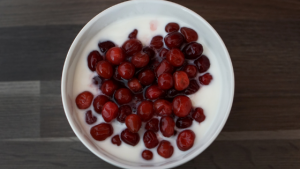
Hippocrates said, “all disease begins in the gut”—and he wasn’t wrong! Today I’m here to tell you how you can regulate your overall health by consuming tiny, living organisms: probiotics.
You’ve hit age 40, 50, or 60… and are noticing that your health isn’t what it used to be. Your belly is growing, you have new aches and pains, and you get sick easier than you used to. You take over-the-counter meds, prescription meds, supplements, this and that… and still nothing seems to be helping your health.
That’s because those medications simply mask your specific symptoms without getting to root of the problem.
For example, you may notice that after age 40 you’ve started getting sick more often. You take cold medication and amoxicillin when it strikes, and you might even take Airborne or vitamin C to help prevent it. But still, your immune system is down. Without a major system overload, you will continue to get sick time and time again because your immune system isn’t functioning properly.
So how do you know what the real problem is? And how do you fix it?
It may not be as complicated as we think. Recent research shows that overall well-being is linked to the gut. That means that oftentimes those inexplicable ailments in your body relate back to your intestinal system (stomach and colon).
In fact, many scientists and researchers even call the gut “the body’s second brain.” The gut sends signals and nutrients to the rest of your body, telling your brain, organs, and even blood how to work.
What does a healthy gut look like?
85% of good bacteria and 15% of bad bacteria make up a healthy gut. This good bacteria helps keep the rest of your body functioning by helping to absorb nutrients, support the immune system, balance hormones, and keep your organs clear of disease. The good bacteria also help fight off bad bacteria, like disease and infection. Research with Harvard Health discovered that good bacteria can actually prevent and treat common diseases.
Every day, we encounter environmental stressors that can deplete the good bacteria and allow bad bacteria to take over. Unhealthy or processed foods, pollution, antibiotics, pesticides, and even simple aging processes can create a disharmonious relationship between good and bad bacteria. Sickness seeps in as the ratio of good bacteria to bad bacteria becomes unbalanced.
In fact, a study in Neurogastroenterology & Motility found that mice who had higher levels of bad gut bacteria were more likely to engage in high-risk behavior. They also found that their gut bacteria neurochemically altered brain gene activity and organ functioning.

Gut health directly relates to mental and physical health. So how do we keep the gut healthy and the good bacteria at an advantage?
Probiotics.
What are probiotics?
Probiotics are live organisms that add good bacteria to your gut. “Pro” means both “an advantage of something” and “before”; and “biotic” relates to living things and the relation to their ecosystem. Together, this gives us an understanding of probiotics:
Probiotics are living microbes that give our gut an advantage before bad bacteria strikes.
There are multiple strains of probiotics, but the most common are Bifidobacterium longum and Lactobacillus acidophilus.
Probiotics are well known for their influence on digestion, IBS, lactose intolerance, and other intestinal-related issues. But recent research has found that probiotics may also have a lot of other benefits for overall health outside of the gut as well:
- Reduce inflammation
- Reduce bloating/gas
- Improve digestion and constipation
- Balance hormones
- Regulate blood sugar levels
- Promote nutrient absorption
- Boost immune system
- Fight off disease, infection, and the common cold
In fact, probiotics help stave off signs of aging in your body by promoting healthy, youthful organ processes. Many people may struggle with a lot of the factors listed above and below and it may prove to be damaging to their confidence as well as their health. That’s why Probiotics such as these probaclac probiotics can help with some of these issues and can help give you a better quality of life. Probiotics may also be beneficial in fighting off age-related concerns like:
- Weight gain
- Cholesterol and cardiovascular illnesses
- Mood disorders and stress
- Lowered immunity (more susceptible to illness)
- New or worsened allergies
- Sagging, wrinkled, uneven skin
- Diminished bone mass
- Harsher medication side effects
- Worsened colon diseases
- More stomach acid and ulcers
Let’s take a look at the research to back up these pro-probiotic claims:
1. Promotes weight loss
Everyone naturally gains weight as they age. After age 40, your metabolism drops and it feels like every fry goes right to the gut. In addition, your testosterone levels drop with age—and low T is linked to increased weight gain.
A slow metabolism, low testosterone levels, and low energy all contribute to that growing number on the scale. You may also feel as though no matter what you do, you can’t seem to shed those increasing pounds. Probiotics may be the solution to kick-start your weight loss program.
Probiotics have been shown to reduce body weight and BMI, according to a meta-analysis published in the International Journal of Food Sciences and Nutrition. They found that ingesting at least two types of probiotics for 8 weeks had the greatest weight loss results. The weight loss was not drastic, so probiotics are not the same as a “weight loss pill.”
Nevertheless, the researchers concluded that probiotics can be a useful addition to a healthy diet and exercise plan as a way to boost weight loss results and encourage a healthful lifestyle. Another study found that the probiotics rhamnosus and bifidobacterium lactis proved especially beneficial in preventing obesity and boosting weight loss.
Even a small reduction in weight due to probiotics can encourage you to pursue a weight loss plan that will lead to overall health and wellness.

One form of probiotics, lactobacillus gasseri, was found to result in a loss of 8.5% belly fat mass over a 3-month period on average. While these results from the British Journal of Nutrition were strong, there was also a strongly opposing caveat. The moment the participants stopped taking the supplement, they gained back all of that weight.
This shows that certain strains of probiotics may help you shed those pounds—but they are not a solution in it of themselves.
Additionally, probiotics have been proven time and time again to help regulate blood sugar. After you eat, your blood sugar spikes. When those spikes are strong enough, your body takes the extra sugar and turns it into fat. Probiotics regulate those spikes, so your body won’t have a lot of free-floating sugar to convert to fat cells.
This means that probiotics may also help individuals with type 2 diabetes.
2. Lowers cholesterol
Probiotics have been linked to cholesterol regulation and heart health. The 2010 Journal of Cardiovascular Disease Research found three ways that probiotics lower cholesterol levels:
a.) Probiotics produce propionic acid.
This acid sends signals to the liver and tells it to produce less cholesterol.
b.) Probiotics break down liver bile acids.
Bile is a byproduct of the liver’s consumption of cholesterol. As probiotics break down bile acids, the liver is forced to produce more bile. This means that the liver needs to use up more cholesterol in order to make that additional bile. This helps naturally lower the cholesterol because your liver is using up cholesterol for its natural processes.
c.) Probiotics actually eat cholesterol and use it as nourishment. Nice!
A 2012 study in Experimental Diabetes Research furthered this theory with proof of certain probiotic strains’ effect on cholesterol. For example, L. reuteri lowered triglycerides, L. acidophilus ate cholesterol, and L. plantarum used cholesterol assimilation to rid of unhealthy cholesterol levels.
Basically, probiotics eat cholesterol, force your liver to produce less cholesterol, and cause your liver to consume its own cholesterol. A triple threat.
3. Improves mood disorders
One of the most surprising and exciting benefits of probiotics is the impact on the brain and nervous system, again reiterating the strong link between gut and overall wellbeing.
After age 40, life hits harder than in the past. External stresses and anxieties pop up, and our body loses energy and strength to deal with these stressors. Probiotics may help keep up our energy and fight off mood disorders, making probiotic users happier and healthier overall.
A Gastroenterology study of mice found that gut flora (aka the amount of good or bad bacteria in the tummy) directly influenced mice behavior and brain chemistry—aside from any external factors. The researchers believe that the bacteria produces some sort of chemical that can influence the brain…meaning that probiotics can help correct mood changes.
This may prove especially true for those who have gastrointestinal diseases or an unhealthy amount of bad gut flora already.
A small Brain, Behavior, and Immunity study found that “multispecies probiotic supplementation reduced cognitive reactivity to sad mood.” Those participants who took a probiotic supplement daily felt happier than those who were taking a placebo. They found the strongest effects with regards to reduced rumination (thinking about sad things) and reduced aggressiveness.
This suggests that probiotics can be a potential preventative strategy for depression, stress, and anxiety.
The Gut Microbes study discovered that two strains of probiotics, L. helveticus and B. longum, had especially strong psychological effects and were best able to reduce symptoms of anxiety and depression.
Additional research has found that bacteria can signal the brain to better deal with “stressors,” so stress doesn’t negatively influence the rest of the body.

But here’s my favorite study on the link between gut bacteria and psychological health:
Research published in Psychopharmacology found that participants taking prebiotics (similar to probiotics) paid less attention to negative stimuli and more attention to positive ones. Those individuals also had less anxiety with regards to negative or threatening stimuli.
But more importantly, those with prebiotics and high levels of good bacteria also had lower levels of cortisol when they woke in the morning (compared to participants taking a placebo). High levels of cortisol has a direct impact on depression.
High cortisol is also related to low testosterone. Cortisol suppresses testosterone production. This means that if you’re depressed or stressed, you get a spike in cortisol and a drop in testosterone. This can lead to low T levels and all the symptoms that come with it, like weight gain (see #1), loss of energy, and low sex drive.
This creates a vicious cycle of depression, anxiety, low testosterone, weight gain, and more. Probiotics may be able to help intervene and reduce cortisol, giving you better control over your moods, your testosterone, your weight, and your energy.
4. Boosts immune health
In the same way that the gut can influence the nervous system, it also influences the immune system. Immunity naturally decreases with age, and it can be hard to re-boost it unless you drown yourself in vitamin C.
A study in Nutrients found that athletes showed less incidence of upper respiratory infection when using probiotics. Another study by Yan and Polk found that probiotics may regulate the functions of immune cells, showing “therapeutic potential for diseases.” In essence, these studies suggest that probiotics are linked to the body’s overall immune-response system when faced with disease and infection.
Antibiotics go in to fight disease and bad bacteria after it’s hit. Probiotics fight off the bad bacteria before disease gets the chance to hit. Having a healthy level of good bacteria and probiotics in the gut can help ward off illness before it strikes. (Hence the prefix “pro”.)
If you keep your gut healthy, you’ll keep your entire body healthy.

5. Minimizes allergies
A study published in the European Journal of Clinical Nutrition found that the probiotic B. lactis was able to boost the immune system and lower levels of pro-inflammatory markers. This helped those individuals suffering from seasonal allergies, concluding that B. lactis and other forms of probiotics may be useful for managing respiratory allergies.
If you are struggling with allergies and over-the-counter meds aren’t doing the trick, probiotics are a healthy potential alternative.
6. Improves skin conditions
Probiotics have anti-inflammatory effects throughout the body—including minimizing inflammation in your largest organ, your skin. Studies suggest that there is a link between probiotics and the treatment of psoriasis, eczema, rosacea, and even stubborn adult acne.
Additionally, long-term inflammation is a major cause of wrinkles. Minimize this inflammation with probiotics and restore your face with lots of water… and you’ll be able to fight off signs of aging. Some researchers believe that probiotics also help build collagen; collagen is what keeps your skin youthful and wickedly handsome.
These results aren’t totally proven yet, but we know probiotics won’t make you look older—so give it a shot!
7. Maintains bone density
Age brings with it a loss of bone mass and density. Bone breaks and cracks become easier and more frequent—and also more life-threatening. This is especially true for men with low testosterone levels, as high estrogen levels can take over and deteriorate bones.
According to the National Osteoporosis Foundation, 1 in 4 men over age 50 will break a bone because of bone density loss.
You can protect your bone density with probiotics! Studies have confirmed that “probiotics can increase bone mass density and bone mineral content and help reduce osteoporosis.”
P.S. Did you know that milk doesn’t actually make your bones stronger? “Got Milk” is one of the largest fibs of our modern media! Probiotics are the most natural way to maintain your bone’ strength and durability.
8. Minimizes diarrhea side effects
Unfortunately, a lowered immune system also leads to other diseases and problems that call for medications. A 2012 study found that probiotics may improve symptoms of diarrhea associated with chemotherapy and antibiotic usage.
In addition, the British Journal of Cancer found that those participants who were treated with two strains of probiotics (5-fluorouracil and L. rhamnosus) experienced less severe diarrhea and shorter hospital stays than those patients not taking probiotics. This was especially true for participants who were undergoing chemo for colorectal cancer, likely because probiotics can have other positive effects on the large intestine.
9. Treats diverticular diseases
Probiotics are well known for their ability to aid in digestion and stomach disorders—but they may have even stronger effects on the intestines than previously considered.
Diverticulitis and diverticulosis are much more common after the age of 40, and diverticulosis is one of the most common medical conditions in the U.S. with nearly one-third of all Americans developing it by age 60—and two-thirds by age 85. But just because it’s common doesn’t mean it shouldn’t be taken seriously. In fact, the pain is so intense it often causes hospital stays, and serious cases can call for emergency surgery and long-term health concerns.
But diverticular disease is preventable and treatable. Multiple analyses and studies have shown that probiotics can help prevent diverticular disease by improving digestion and bowel movements. Less poop in your system, the less likely you’ll develop diverticular disease—and the more energy and vigor you’ll have! These studies also showed that probiotics can help treat symptomatic diverticular disease, prevent disease recurrence, and improve quality of life.
One study found that the probiotic L. casei was an especially effective treatment—as effective as the standard medication for diverticulosis. Plus, the probiotics had fewer side effects. A combination of probiotics with prescription medications showed the fastest and most complete recovery.
10. Eradicates ulcers

Similarly, ulcers become a common occurrence with age. Acid builds up over the years (especially when processed foods are consumed), and the stomach doesn’t have the youth and vigor to handle the imbalance of acid. This causes the stomach to eat itself, causing painful and dangerous ulcers and internal bleeding.
Probiotics have been shown to eradicate ulcers and restore the gut’s natural balance. Probiotics attack and eat Helicobacter pylori, a bacteria linked to the development of ulcers. This stops ulcers in their tracks before they even begin to form.
Probiotics thus can reduce peptic ulcers, gastritis, and other stomach atrophies.
Where can you find probiotics?
Have I convinced you of the importance of probiotics in your aging health? Great! So how can you get the probiotics your body so desperately craves?
You can naturally find probiotics in fermented foods such as:
- Yogurt
- Kimchi
- Soft, fermented cheeses
- Unpasteurized sauerkraut
- Miso soup
- Sourdough bread
- Sour pickles (naturally fermented)
- Kombucha
- Kefir (fermented milk drink)

These delicious foods are an easy addition to your diet. I always recommend eating at least one cup of Greek yogurt per day. It’s a healthy snack that will give you your daily dose of probiotics while also helping to slim down your waistline, curb hunger cravings, improve mental clarity, and more.
The unfortunate paradox of probiotic-rich foods is that many of them are lactose-happy. If you are lactose intolerant or sensitive, you should not eat many of these foods. Nevertheless, you especially need probiotics to help overcome your IBS and lactose intolerance problems.
Thankfully, probiotic supplements are easy to come by. You can buy a variety of probiotic strains at your local health grocer, supplement store, or drug store. Taking the daily dose of these supplements will ensure you regulate your gut flora towards overall healthier wellbeing—no matter your age.
Always be sure to consult with your doctor before starting a new regimen. Your doc can help find the best natural probiotic solutions for your health concerns.
Do you want to learn more about ways to boost your health? Sign up for The Male 90X program now.

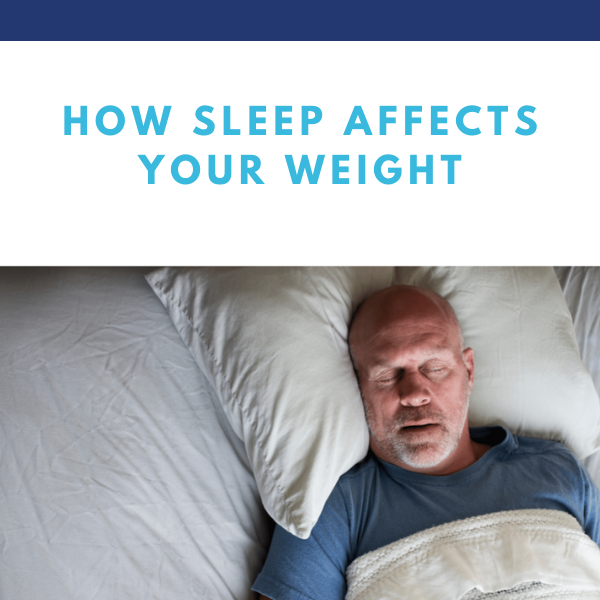
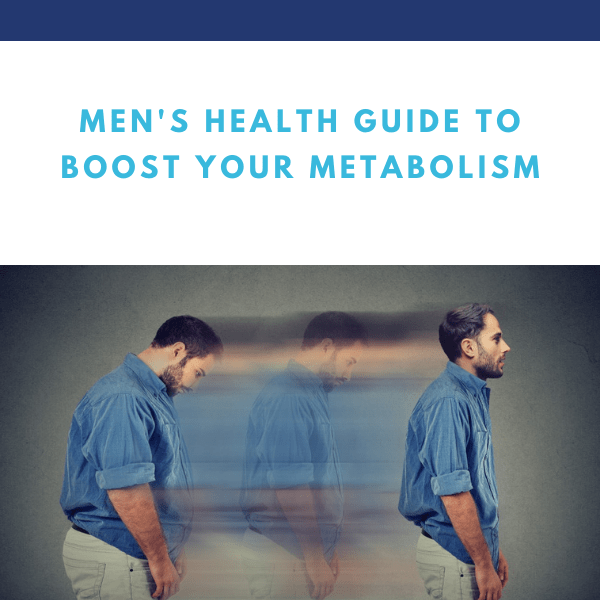
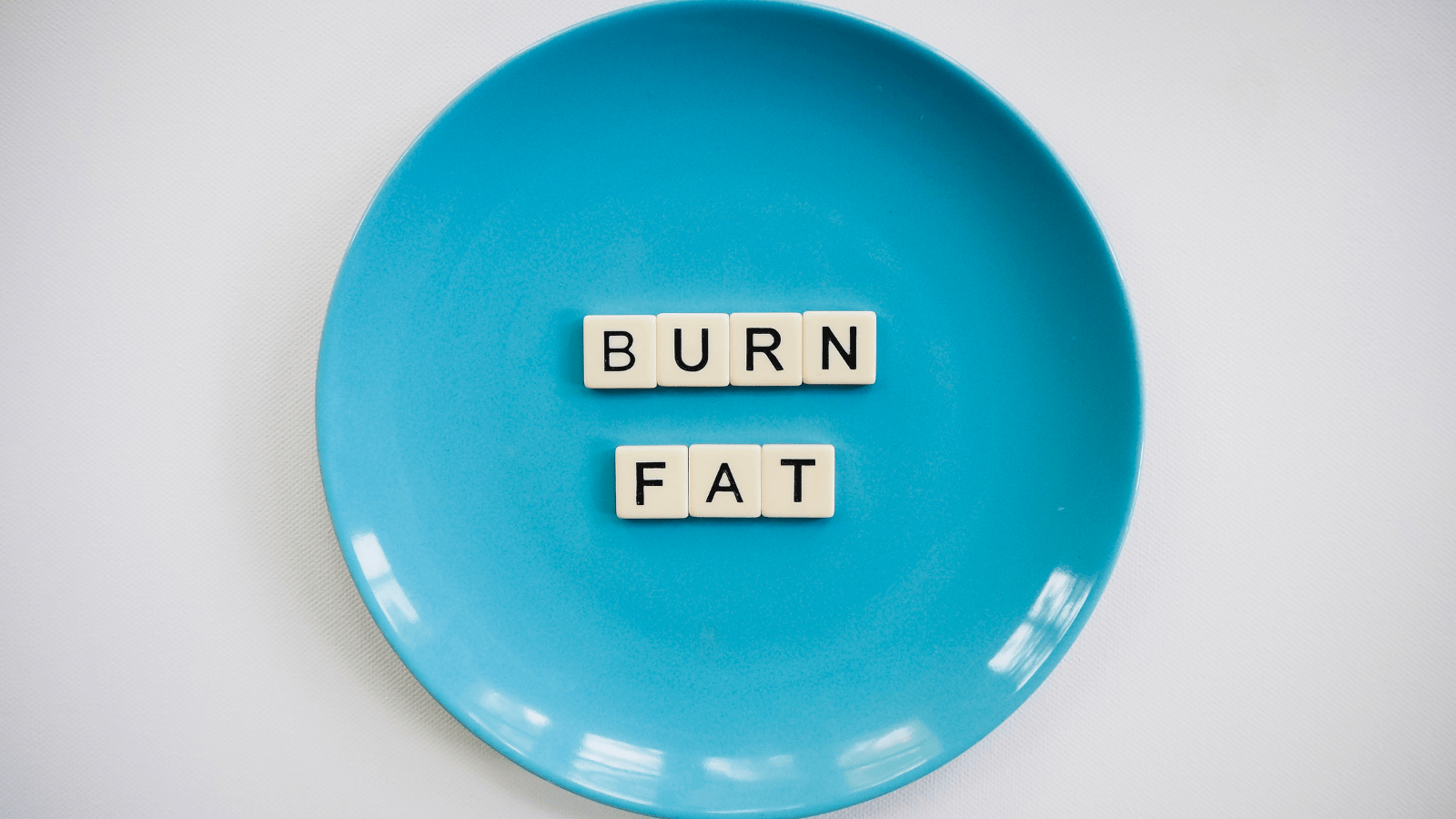

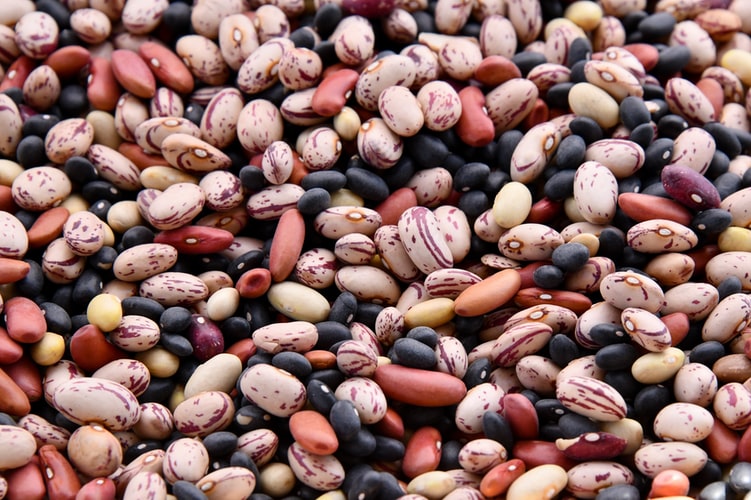



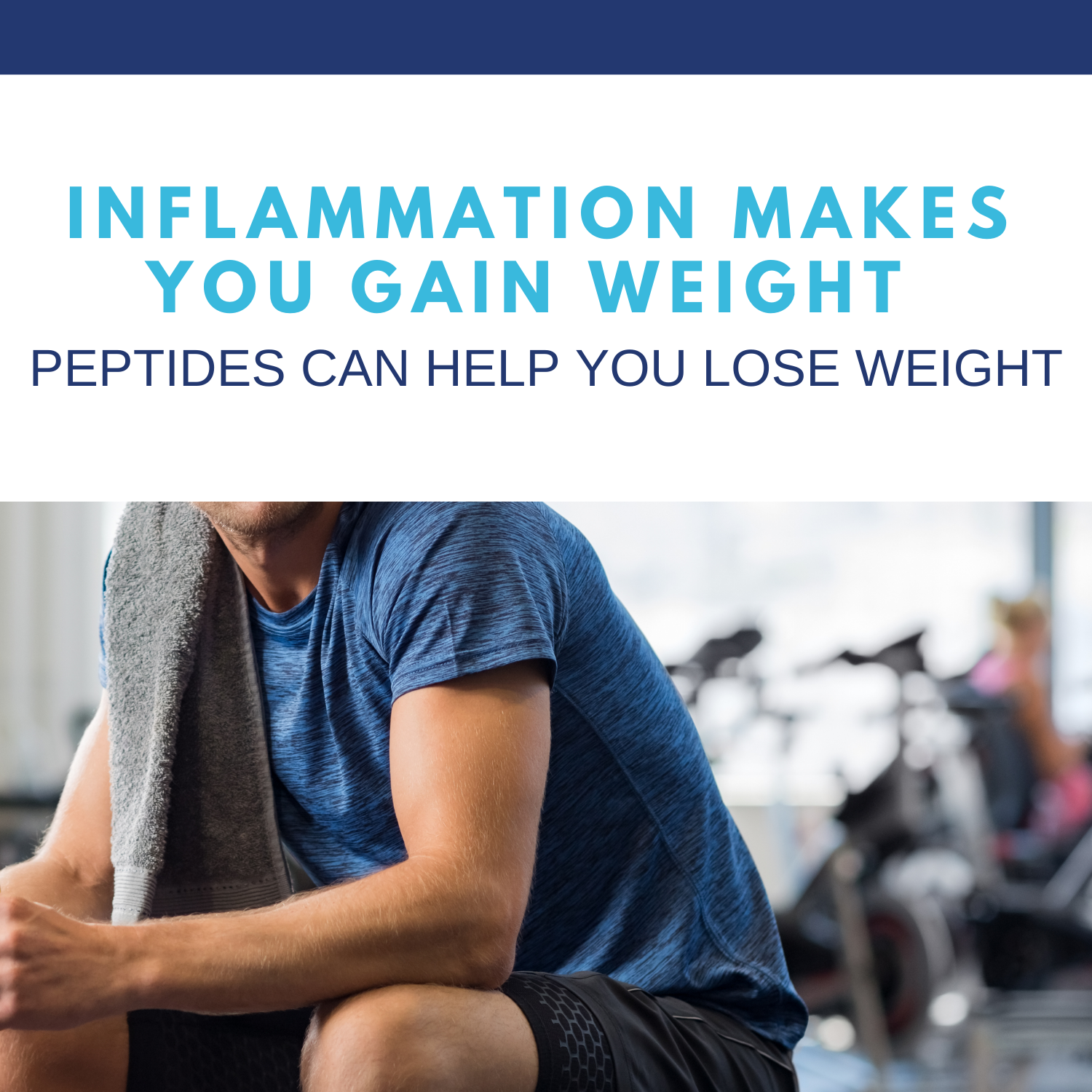
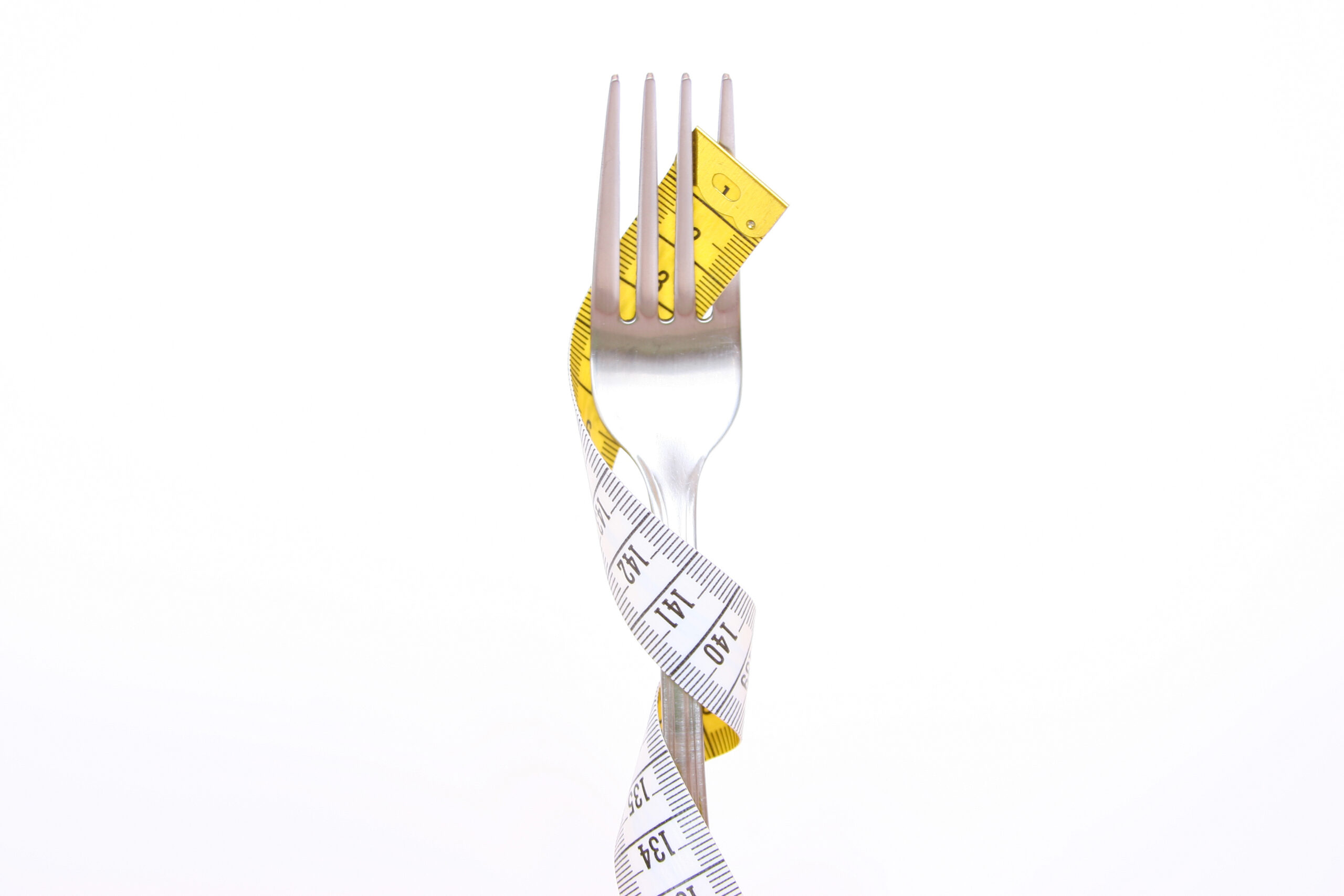
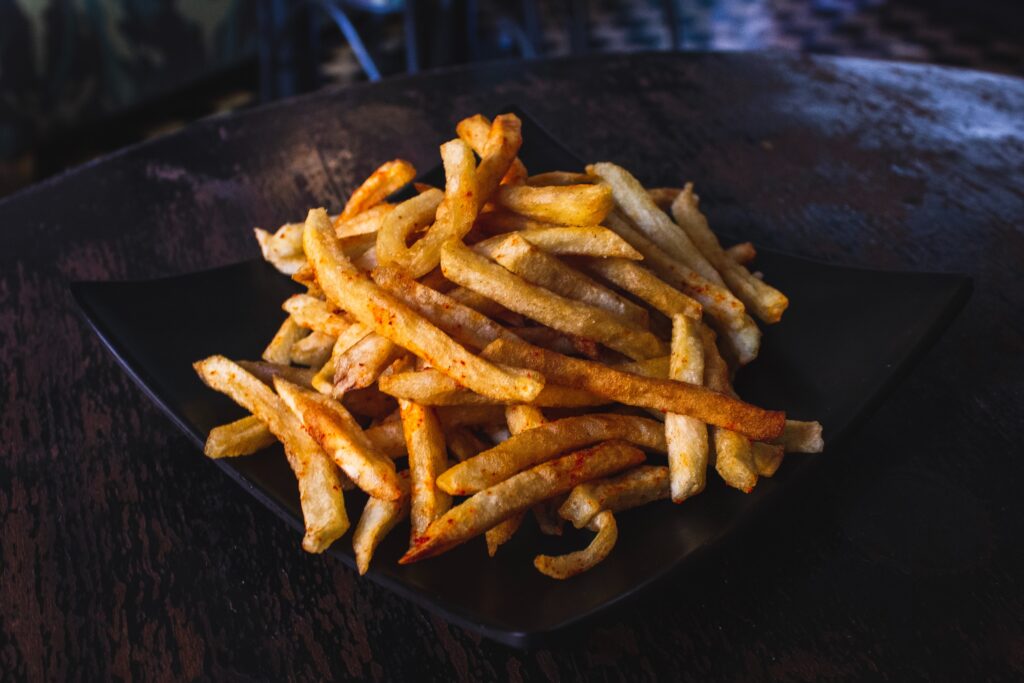


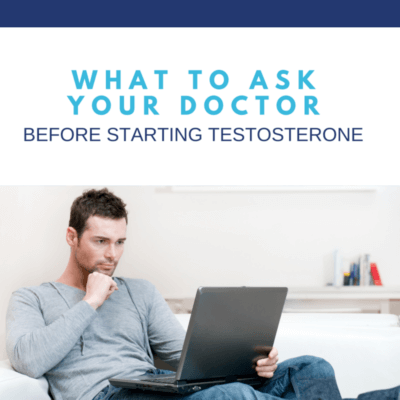


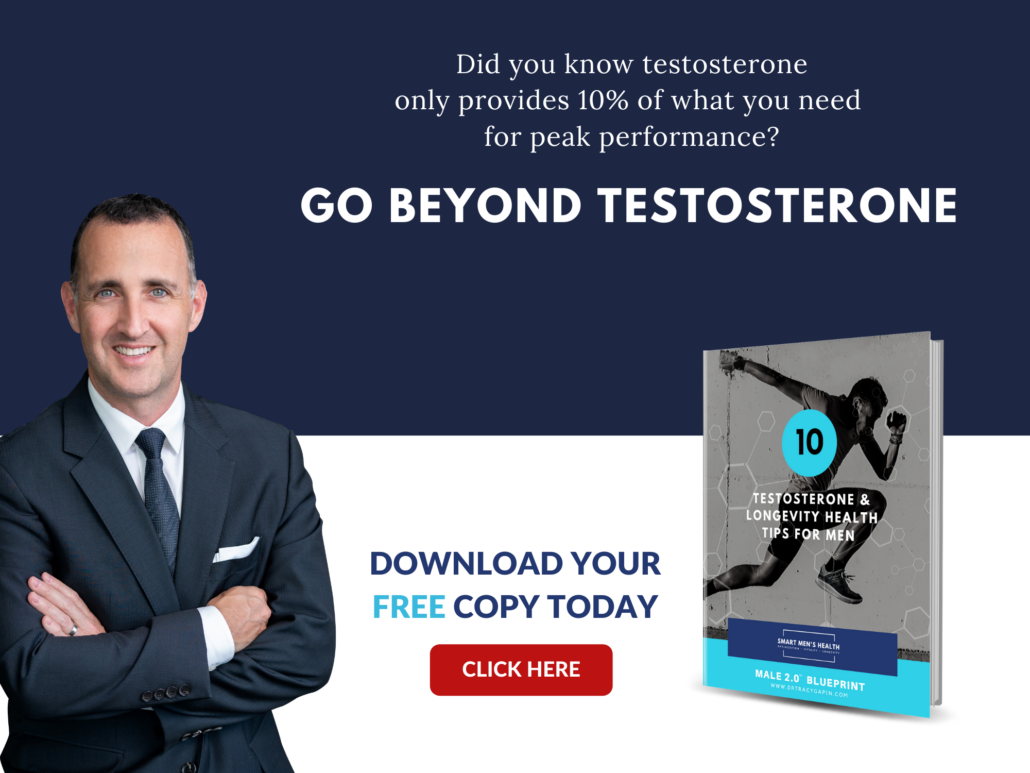
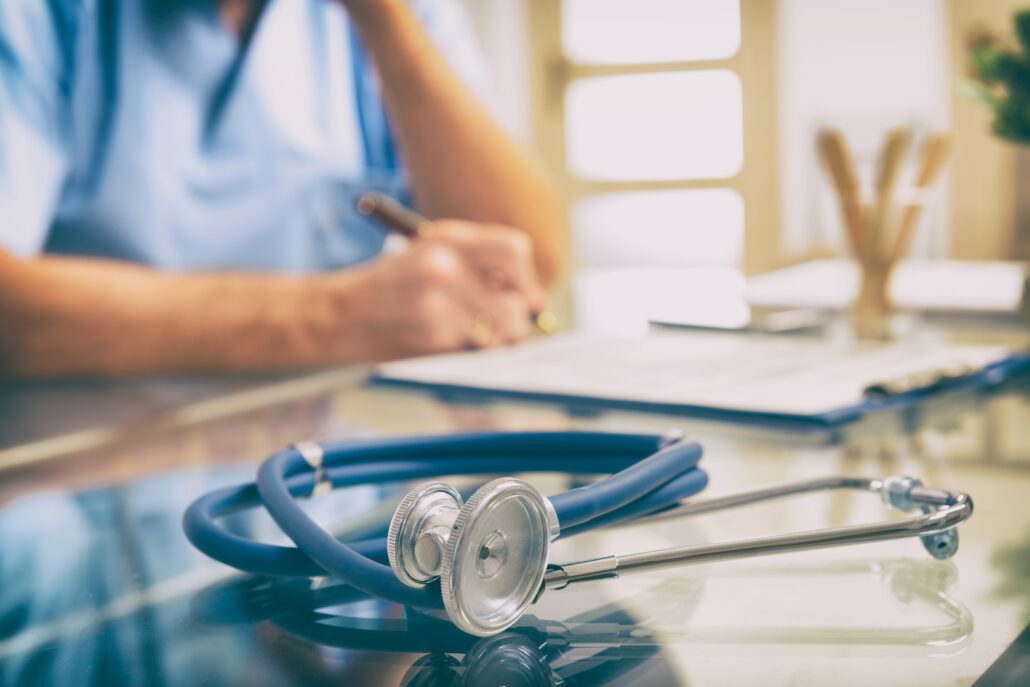

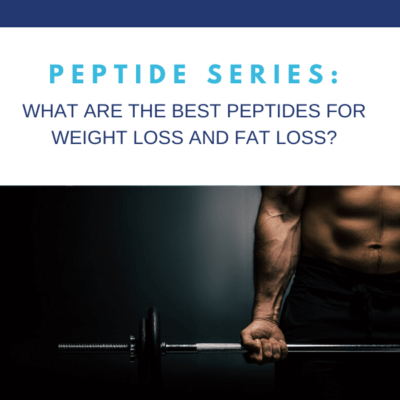

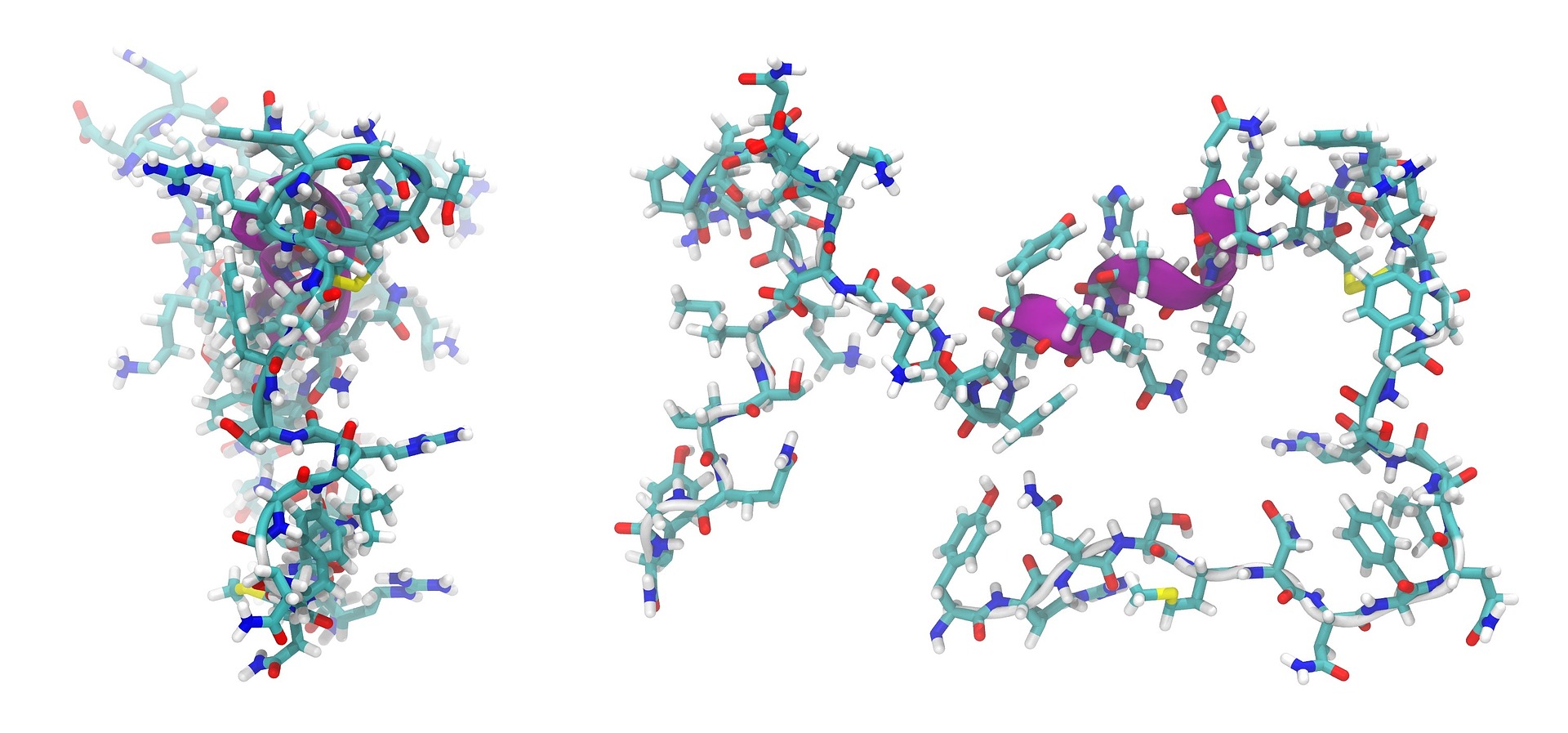

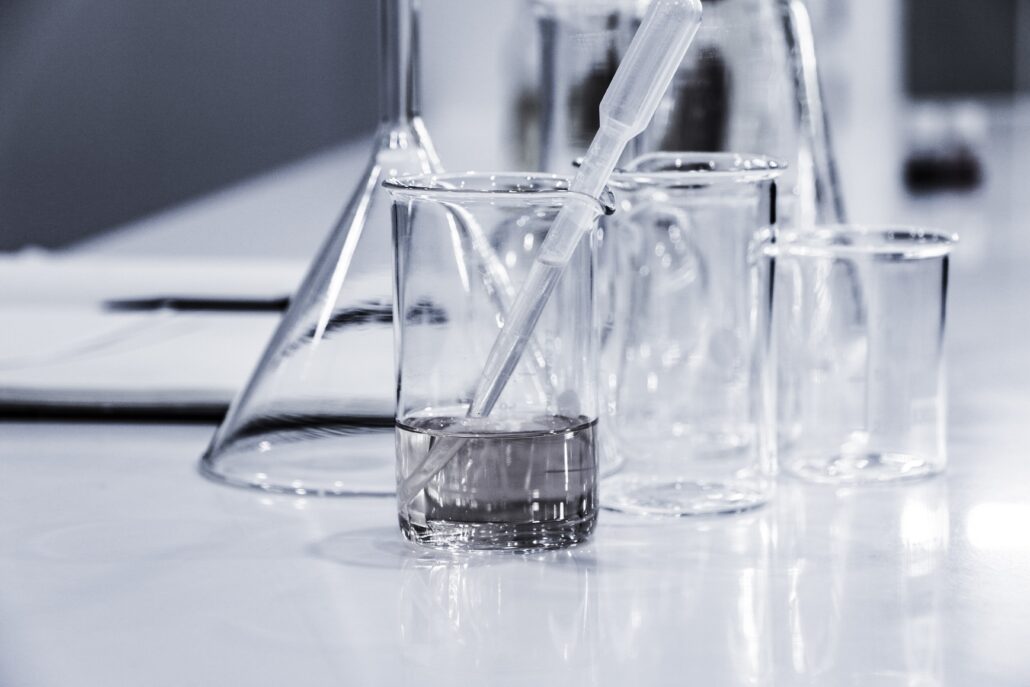
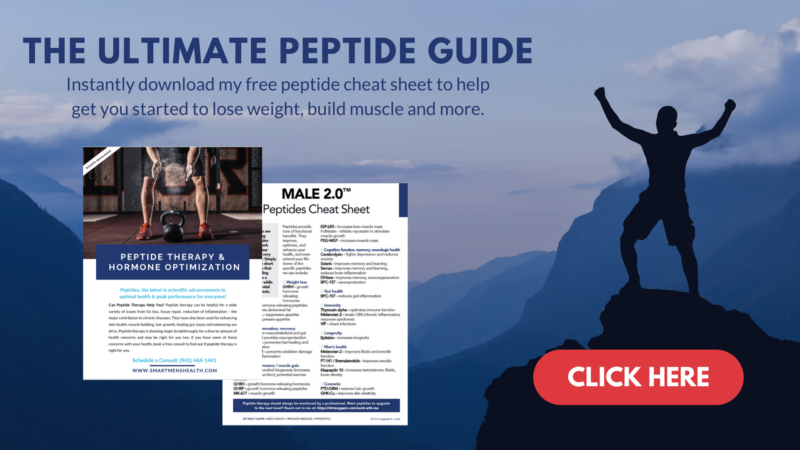
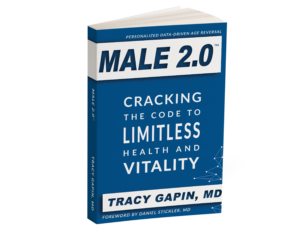 In
In 
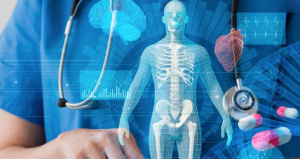







 Not all exercise is created equal when it comes to raising testosterone levels.
Not all exercise is created equal when it comes to raising testosterone levels.  Compound exercises work a number of muscle groups at one time. Research shows that testosterone levels are correlated with the amount of muscle tissue that’s stimulated during a workout. The more muscles you work, the greater the T boost. You want to avoid isolation exercises, which have no proven impact on testosterone.
Compound exercises work a number of muscle groups at one time. Research shows that testosterone levels are correlated with the amount of muscle tissue that’s stimulated during a workout. The more muscles you work, the greater the T boost. You want to avoid isolation exercises, which have no proven impact on testosterone. 


